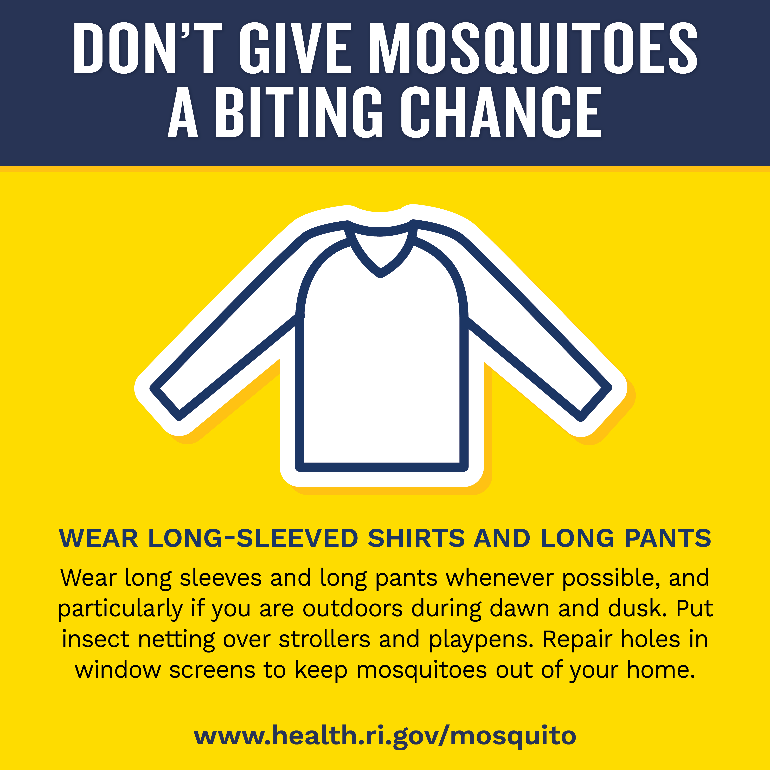Urges Residents to Prevent Mosquito Bites until First Hard Frost
The Department of Environmental Management (DEM) today announced that the most recent round of testing by the Rhode Island Department of Health (RIDOH) State Health Laboratories has confirmed one new positive finding of West Nile Virus (WNV).
The finding was detected in a mosquito sample collected in
Glocester on Sept. 27.
DEM collected 210 samples of mosquitoes from 39 traps set
statewide Sept. 21-28. Results from mosquitoes collected during the Sept.
29-Oct. 12 period are pending. To date, the state has confirmed six positive
WNV findings, but no mosquito samples have tested positive for Eastern Equine
Encephalitis (EEE).
Along
with the human case of WNV announced by RIDOH Oct. 7 and the positive finding
of EEE confirmed in Connecticut Oct. 1, today's announcement is a reminder that
Rhode Island residents should take extra precautions to avoid being bitten
during the final few weeks of the mosquito season.
DEM and RIDOH advise residents to reduce their exposure to
mosquitoes until the first hard frost. (A hard frost is when the air and the
ground freeze below 32°F for three hours or below 28°F for two hours.)
WNV is much more prevalent than EEE. It has become established in North America following its introduction in 1999. To date this mosquito season, 207 pools of mosquitoes trapped in Connecticut and 144 mosquito pools in Massachusetts have tested positive for WNV.
Connecticut has confirmed three WNV cases in humans and
Massachusetts has confirmed eight human cases and one alpaca case. Connecticut
also has confirmed two positive EEE findings in mosquito samples.
Personal
protection is the first line of defense against mosquitoes that may carry WNV,
EEE, or other diseases – and the most effective way to avoid infection. With
WNV established in the state, residents are reminded to eliminate mosquito
breeding grounds and prevent being bitten, whenever possible.
Visit
health.ri.gov/mosquito for additional mosquito prevention tips, videos, and
local data. DEM and RIDOH also remind Rhode Islanders to take precautions to
avoid mosquito bites when traveling to Zika-affected countries. Pregnant women
and women who are considering becoming pregnant should not travel to countries
with active transmission of Zika.
Mosquitoes are trapped weekly by DEM and tested at the RIDOH
State Health Laboratories. DEM issues advisories on test results from July through
mid-October, with additional reports as necessary. Typically, positive test
results trigger additional trapping to assess risk.
For
more information about DEM divisions and programs, visit www.dem.ri.gov or
follow us on Facebook or Twitter (@RhodeIslandDEM).
Related
links
